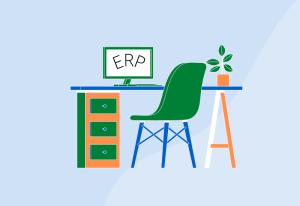
When it comes to implementing an ERP (Enterprise Resource Planning) system in your company, there are many factors to consider. Choosing the right system can make a significant difference in how your business operates and ultimately its success. However, there are several common mistakes that companies make when selecting an ERP system. In this article, we will discuss the five most common mistakes when choosing an ERP system and how to avoid them.
Not Clearly Defining Business Needs
One of the most common mistakes when choosing an ERP system is not defining your business needs clearly. Without understanding what your company needs from an ERP system, you run the risk of choosing a system that doesn’t meet your requirements. You must identify the specific features and functionality you need in an ERP system to ensure it aligns with your business objectives.
To avoid this mistake, it is essential to engage all stakeholders in the ERP selection process, from employees to senior management. This will ensure that everyone’s needs are considered and included in the system’s requirements.
Failing to Consider Integration Needs
Another common mistake is not considering the integration needs of your business. Your ERP system must integrate with your existing systems, such as your accounting software, inventory management system, and others. Choosing an ERP system that doesn’t integrate well with your existing systems can cause major headaches for your IT department and create inefficiencies in your business processes.
To avoid this mistake, it’s crucial to understand your current technology infrastructure and identify any potential integration issues before selecting an ERP system. Look for systems that have strong integration capabilities and a proven track record of integrating with other software.
Overlooking User Experience
User experience (UX) is critical when selecting an ERP system. If the system is too complex or challenging to navigate, it can lead to frustration and low adoption rates. This can negatively impact the system’s effectiveness and ultimately, your business processes.
To avoid this mistake, it’s important to involve end-users in the selection process and consider their feedback on the UX. Look for systems with an intuitive interface and easy-to-use features to ensure high adoption rates and a positive user experience.
Neglecting Support and Maintenance
Implementing an ERP system is not a one-time event. It requires ongoing support and maintenance to ensure the system continues to meet your business needs. Neglecting support and maintenance can lead to downtime, security vulnerabilities, and reduced system performance.
To avoid this mistake, it’s crucial to consider the support and maintenance services offered by the ERP system provider. Look for providers with a track record of providing excellent customer support, timely updates, and ongoing maintenance services.
Not Planning for Future Growth
Finally, not planning for future growth is a common mistake when choosing an ERP system. Your ERP system should be scalable and adaptable to support your business’s growth and changing needs. If the system can’t keep up with your growth, you may need to invest in a new system down the road, which can be costly and time-consuming.
To avoid this mistake, it’s important to consider your business’s long-term growth plans and select an ERP system that can support those plans. Look for systems with scalability features, such as the ability to add new users, modules, and locations, as well as customizable workflows to adapt to changing business processes.
In conclusion, choosing the right ERP system for your business requires careful consideration and planning. By avoiding these five common mistakes, you can ensure a successful ERP implementation that supports your business needs and growth plans.




